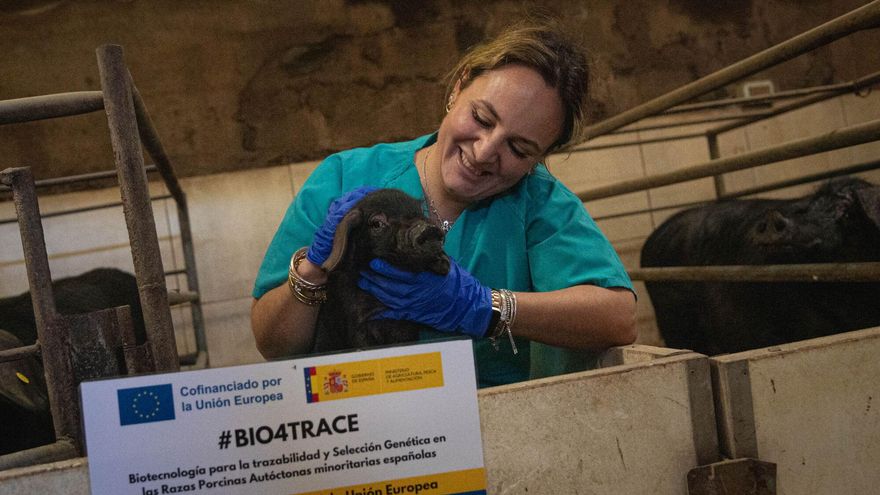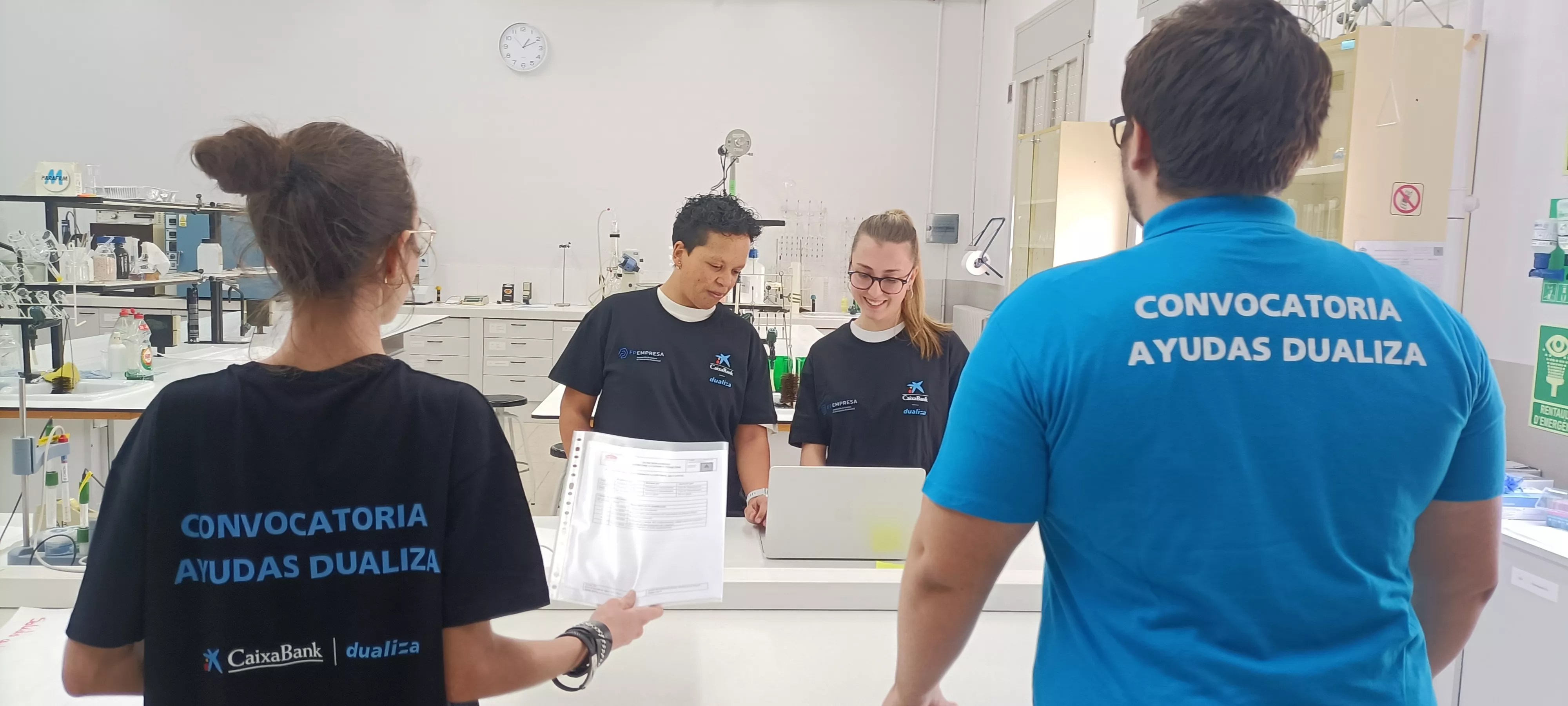
Alba Chasco González is akin to the Doctor Pol of the Black pig in the Canaries. Like her famous American television counterpart, this Majorera veterinarian from the Association of Breeders traverses the farms of the archipelago to verify health standards and ensure animal welfare in the breeding of the native pig breed at risk of extinction. Engaged “and filled with enthusiasm,” she is involved in research with the University of Murcia focused on the genetics of these pigs, notable for their unique colouring and fur. She notes that in the Canary Islands, “there are 666 breeding individuals, comprising 579 females and 87 males,” located across approximately 25 farms on the various islands, with eleven situated in Tenerife. At a farm in Pedro Álvarez (Teguese), she shared her insights with the day.
“I specialise in pig farming,” she explains, “and I previously collaborated with the collective, but I began working officially last year.” Since completing her studies at the Veterinary Faculty of the University of Las Palmas, she has specialised in reproduction and also oversees the Health Defence Association (ADS) of Tenerife.
The project with the university requires a dedicated professional, a role which Alba occupies. This initiative, known as Bio4trace, focuses on three minority breeds: the Canarian black pig, the Celtic Galician pig, and the Murcian flat pig. It is funded by the EU, with the Veterinary Faculty of Murcia managing the genetic research led by the esteemed Professor Guillermo Ramis.
Initiated last year, the project has three primary objectives. The first is to conduct laboratory analyses of the meat quality from these animals. Everything that contributes to the flavour of the pig “should also be genetically understood,” the veterinarian indicates. The second aim is to identify which pigs exhibit the most resistance or yield the best quality meat. Chasco emphasises, “We are going to undertake genetic selection.”
It must be noted that the black pig is at risk of extinction, as many people are still unaware
Alba Chasco
– Veterinarian at the Association of Breeders
The third objective encompasses examining their resilience to adverse weather conditions. Using saliva samples, the impacts of thermal stress are assessed to ascertain why black pigs adapt better to the Canary Islands, thriving in temperatures between 5 and 30 degrees.
The black pig farms are located in Tenerife (11), La Palma (4), Lanzarote (5), Fuerteventura (8), and Gran Canaria (7). These are spread across both the northern and southern regions of the islands, including areas like Los Realejos and La Orotava, as well as Adeje.
This breed is indeed endangered. Alba stresses, “It is crucial to highlight this because many people are unaware.” She points out that “before the association formed, the breed was on the brink of disappearance.” She recounts how in the mountains of La Palma, in Garafía, Veterinarian Juan Capote discovered a pig when he believed they had become extinct. This revelation led to the formation of the group currently chaired by Jesus Marrero.
The Association of Black Cochino Canarian breeders oversees and regulates the population of this breed on farms. Owners benefit from offerings like veterinary support, which includes Alba Chasco’s routine visits to monitor the animals’ health. She employs ear tags for identification and monitoring, “a guarantee of being listed in the breed’s genealogy book.” This record ensures the traceability of each pig from birth to slaughter, preventing any misrepresentation of breed. In this context, it ensures that black pigs are not misidentified as white pigs. In 2024, they achieved certification as a 100% native breed.
The slaughter weights range from 7 to 8 kilos for younger pigs, typically around 2 months old, while older pigs can weigh up to 80 kilos. Approximately 15% are lost during processing, with the remainder being fully utilised, as “nothing goes to waste.” Alba interacts with the Berracos de las Farjas farm. That same day, she heads to Las Palmas to inspect another farm, a testament to her dedication as she spends minimal time at the Lagunera Livestock House due to her travels across all the Canary Islands in search of these pigs, whose meat is a delicacy at any Guachinche.
Strict Compliance with European Regulations
Royal Decree 159/2023, effective from March 8, mandates the adaptation of Canarian pig farms to align with European standards to enhance animal welfare and reduce pollution. This includes noise reduction measures, adequate ventilation, heating or cooling systems to mitigate thermal stress in large-scale farms, and appropriate access to food and water along with designated areas for rest and quarantine, in addition to monthly monitoring of ammonia and CO2 levels, and the incorporation of anti-stress activities. Both veterinarians, Alba Chasco and her colleague Fidel Pérez, confirm that black pig farms strictly adhere to these regulations established prior to March 8.
















